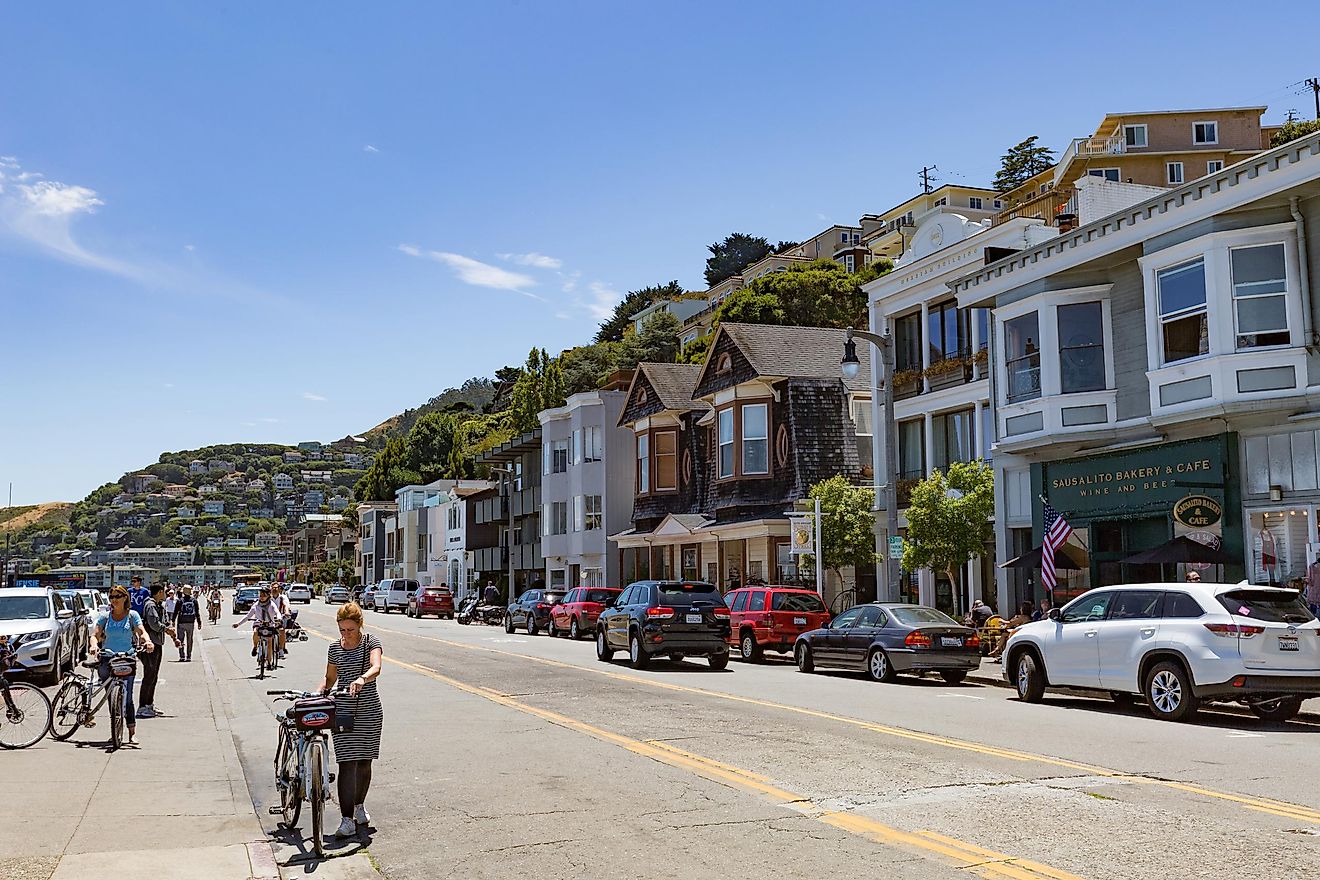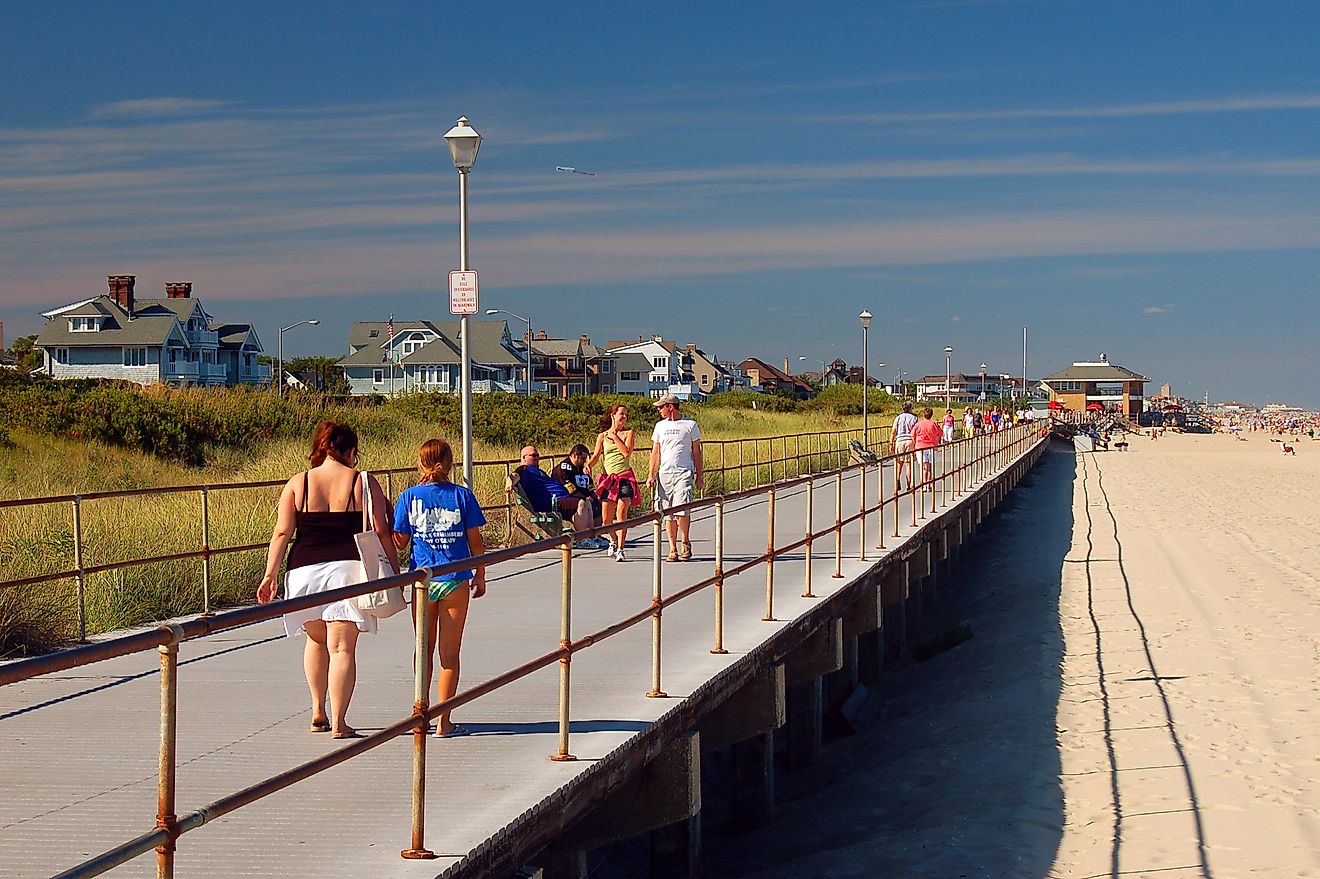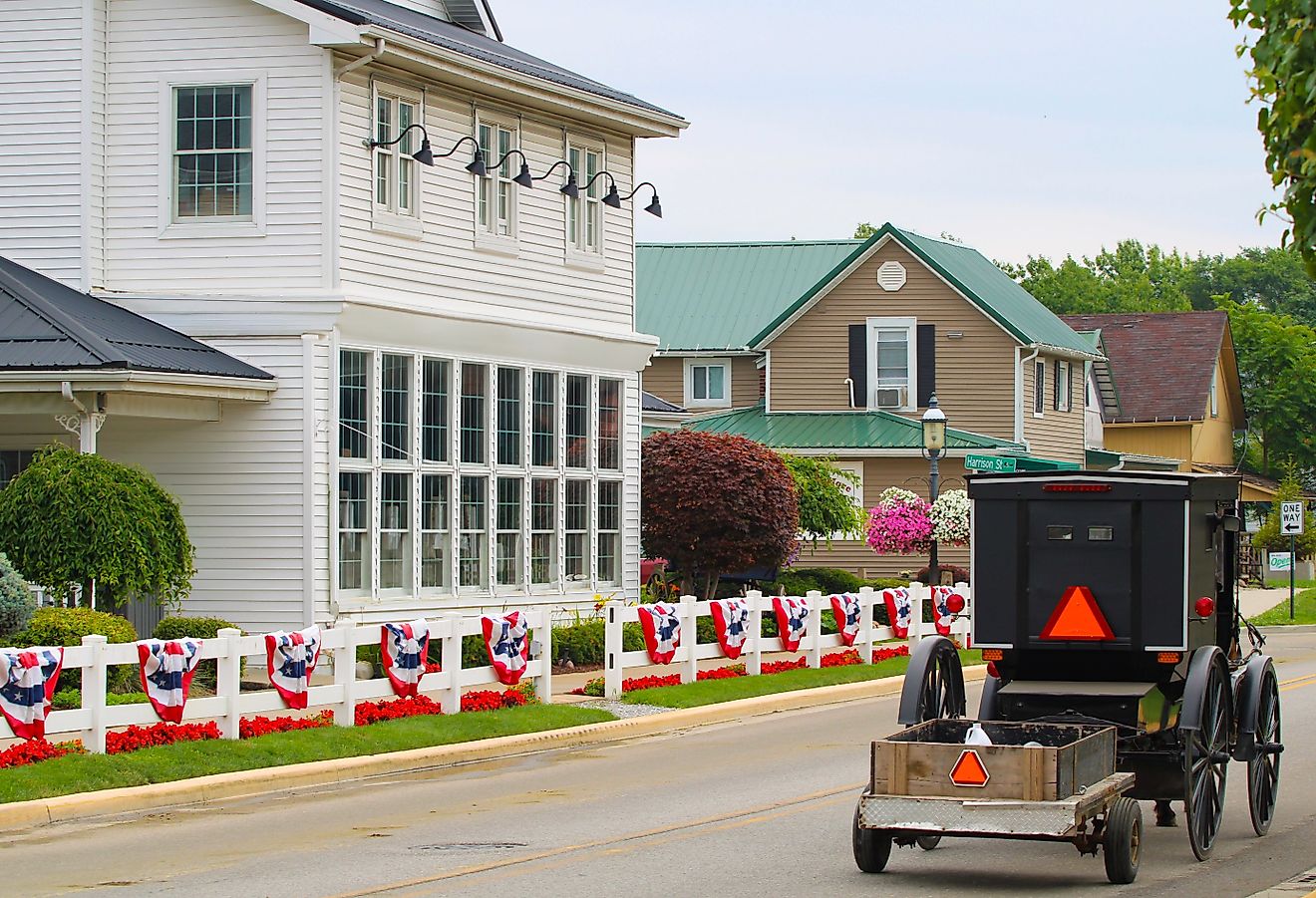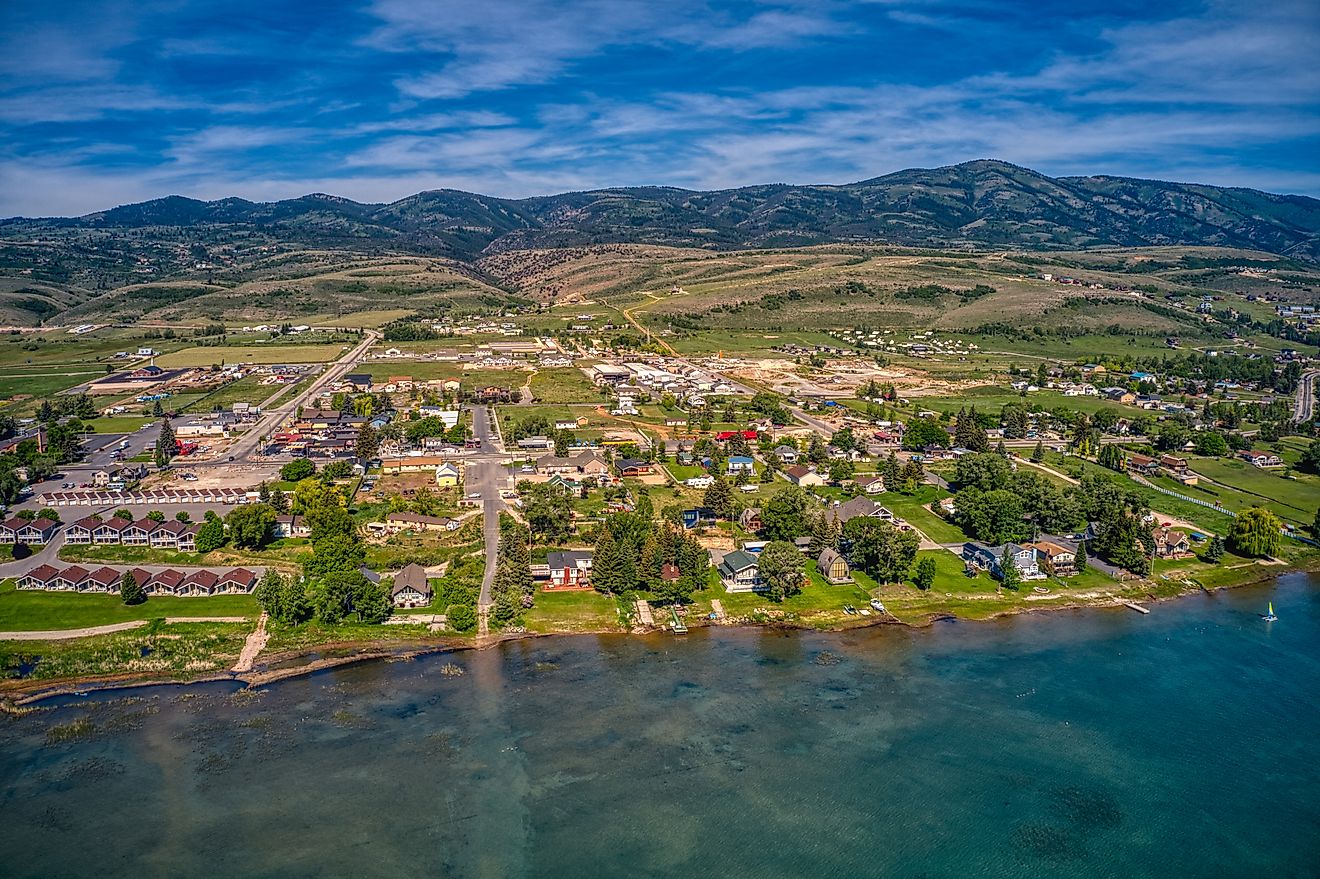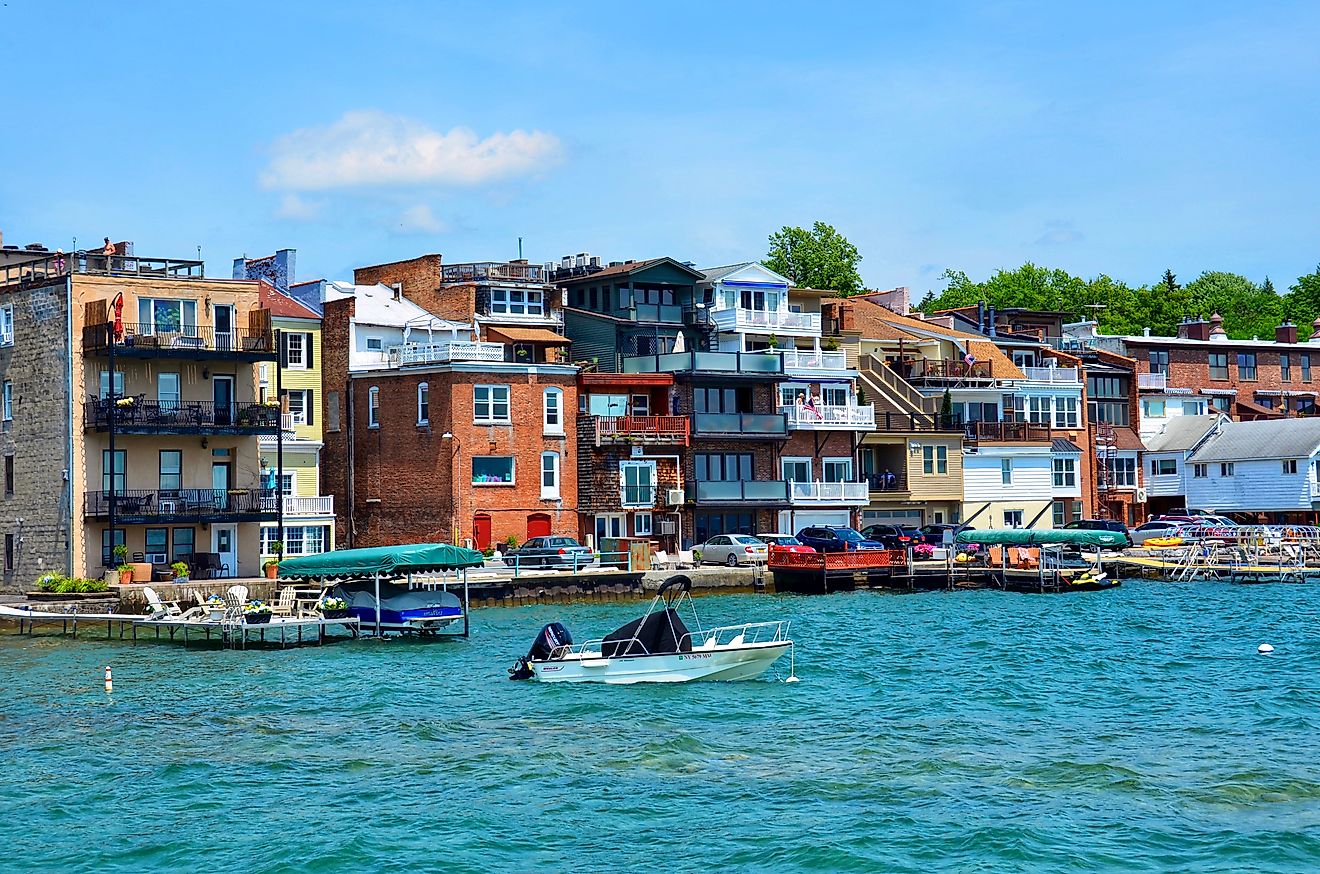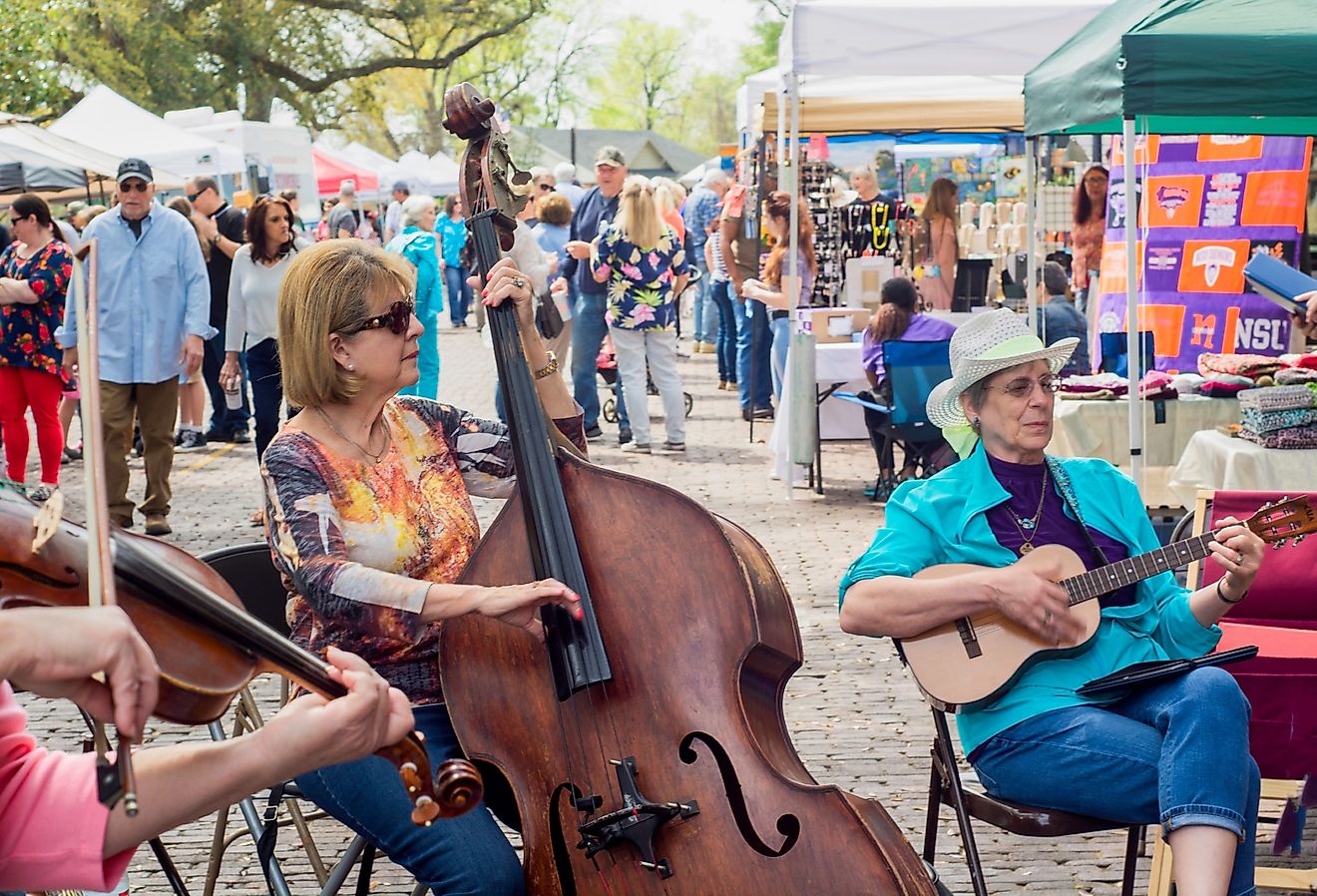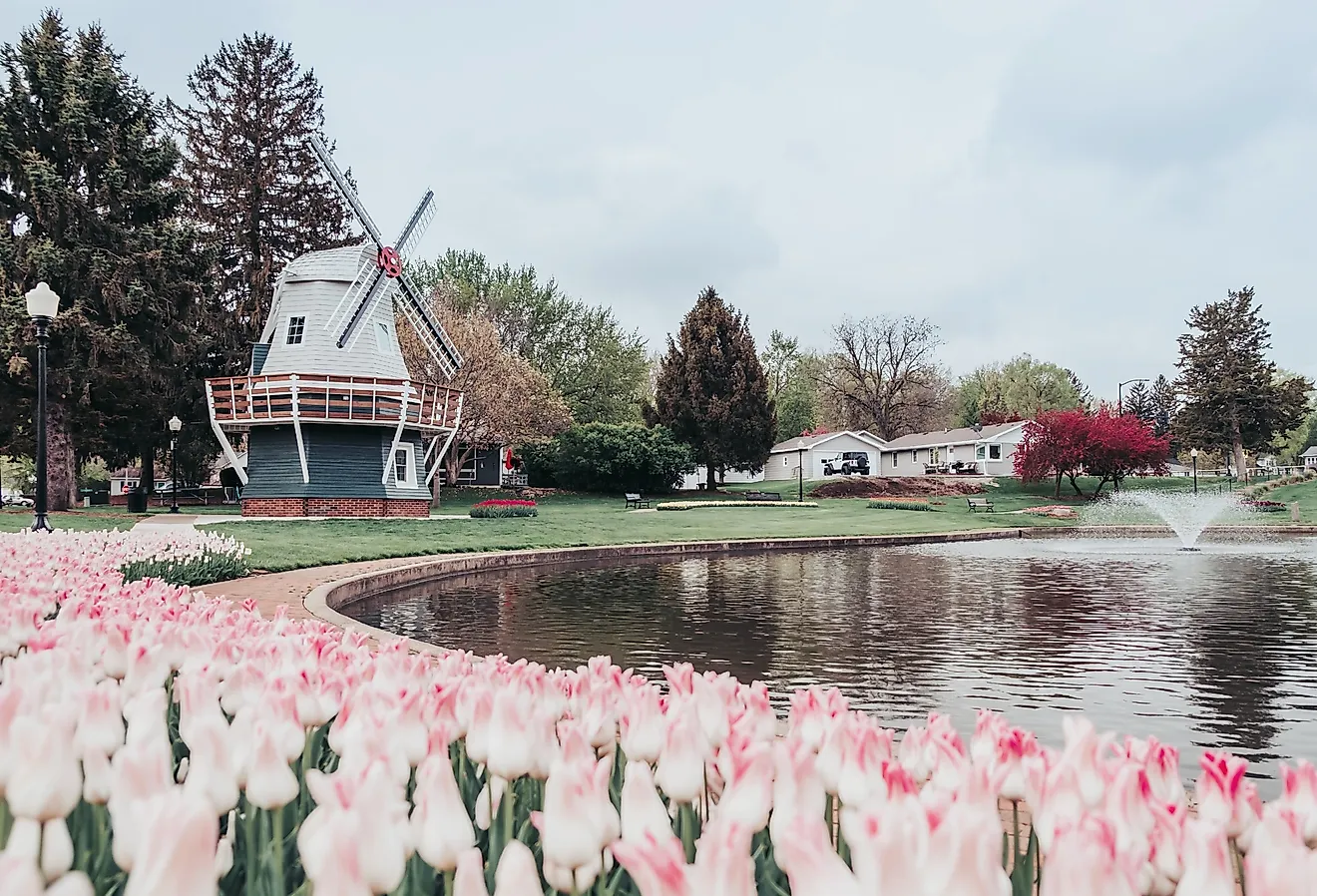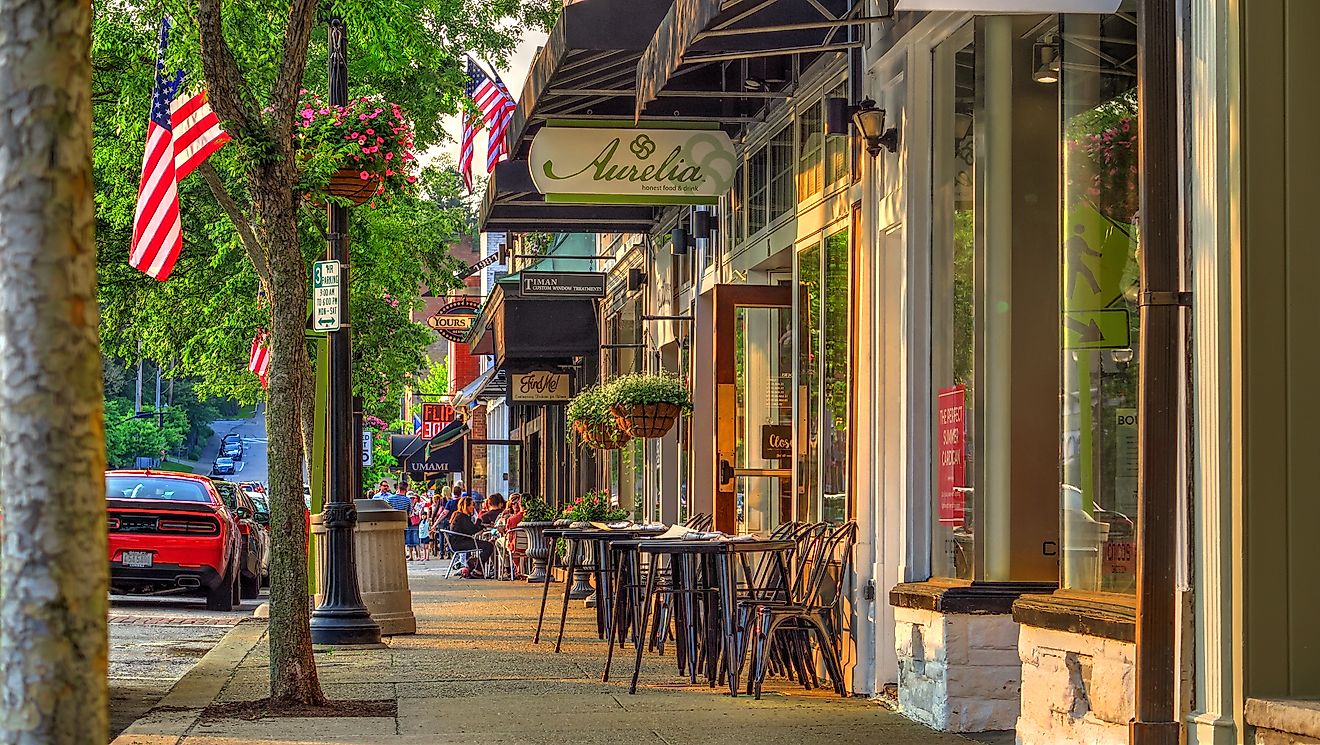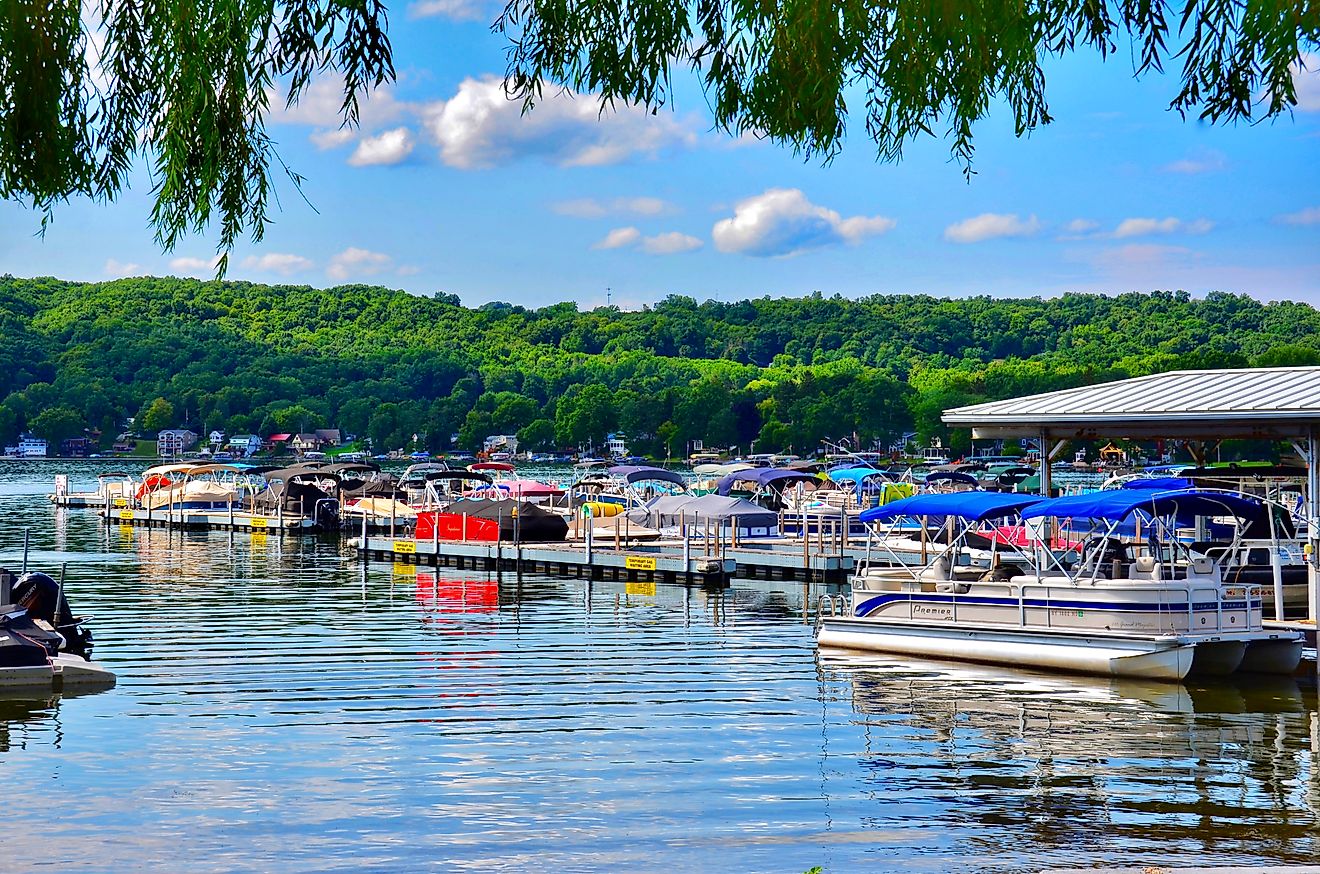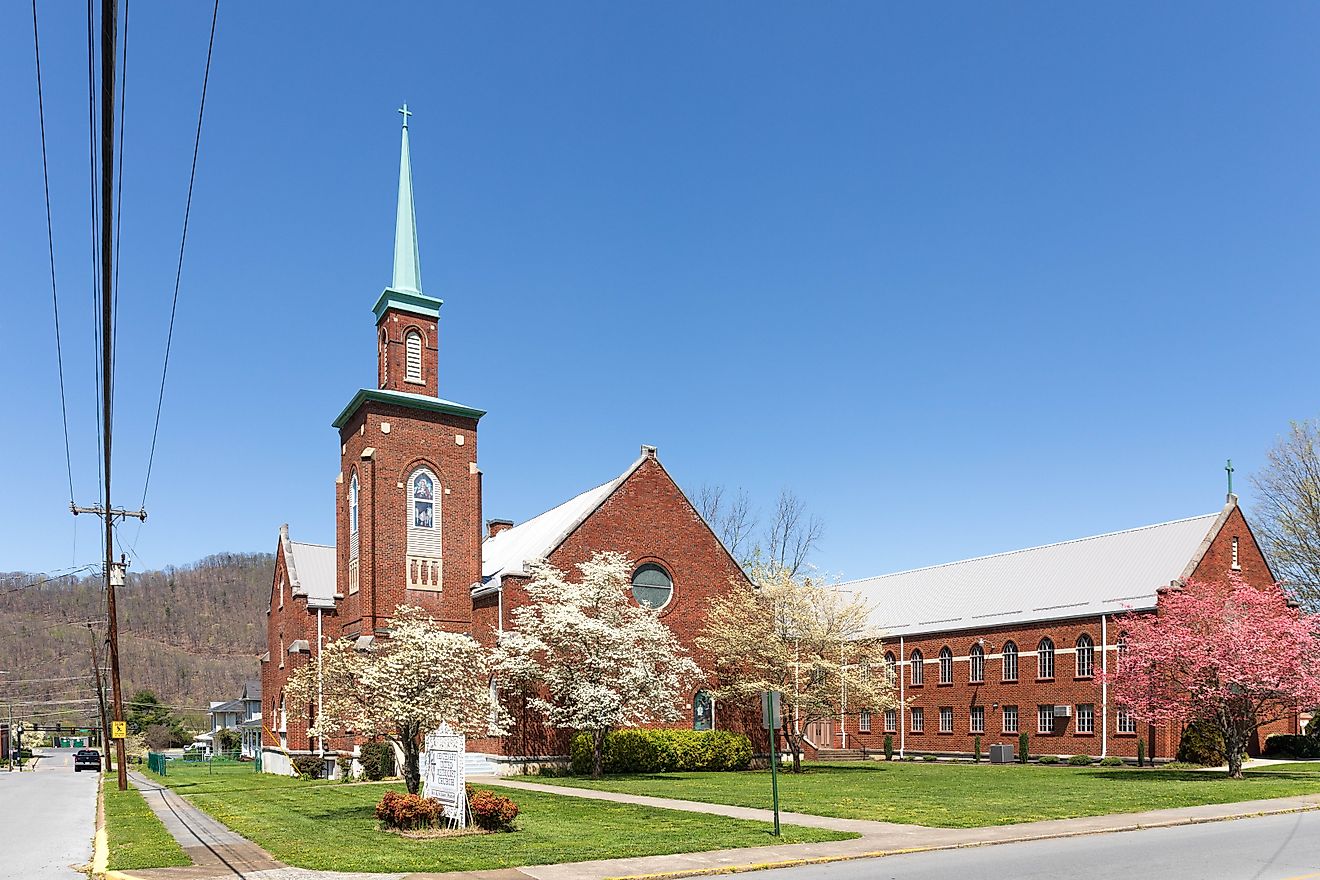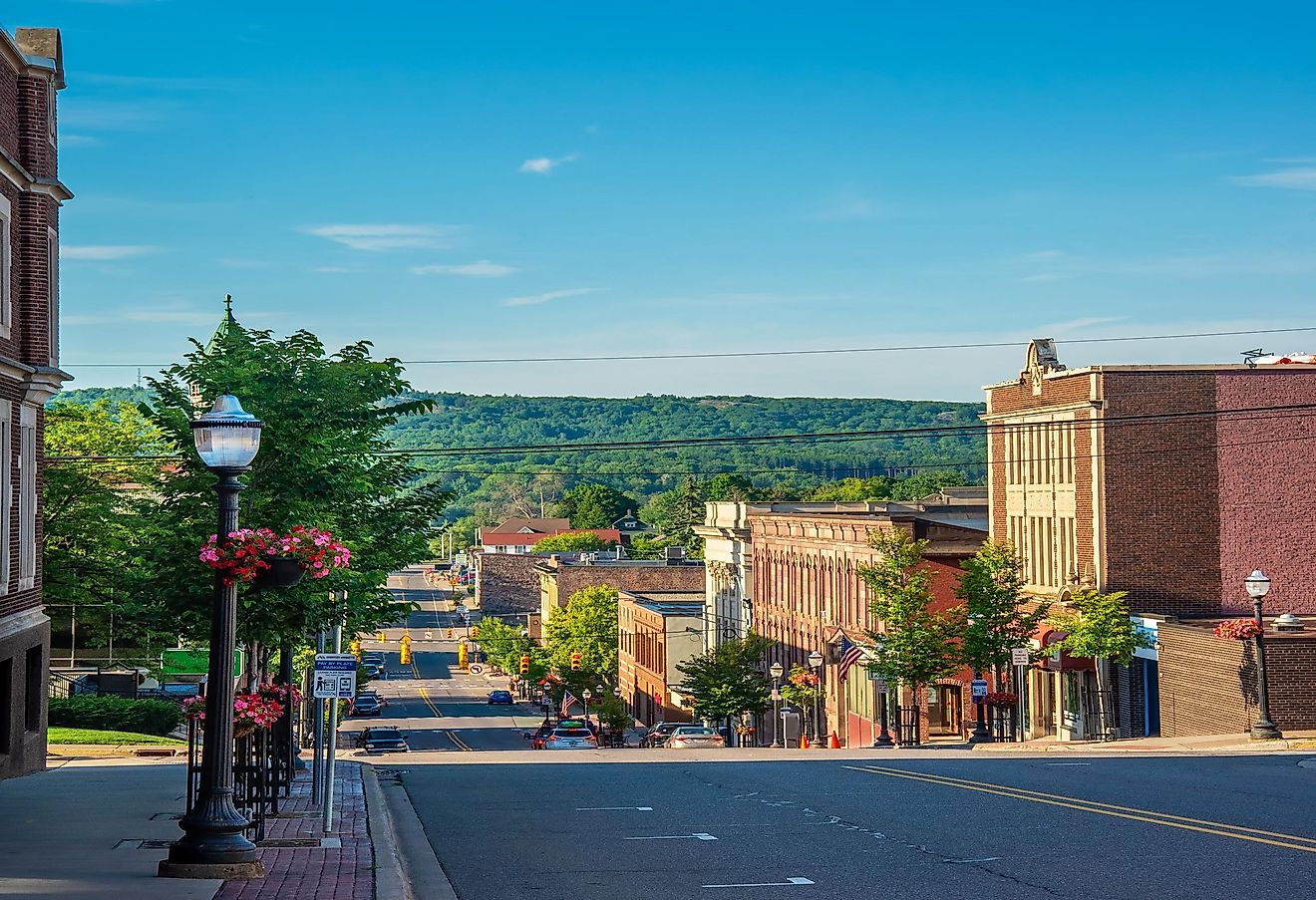
7 Picture-Perfect Towns in Michigan
Those who know Michigan tend to love it. The Midwestern state is famous for frontier history, cold winters, and especially its beautiful scenery. One of the US states bordered in part by the Great Lakes, Michigan's regions, like its people (called "Michiganders"), have picturesque living in their nature. The state lies across two main landforms: the mainland and the Upper Peninsula, on the border of Wisconsin. And as these picture-perfect small towns show, Michigan's best features blend history, culture, and beauty above all.
Holland
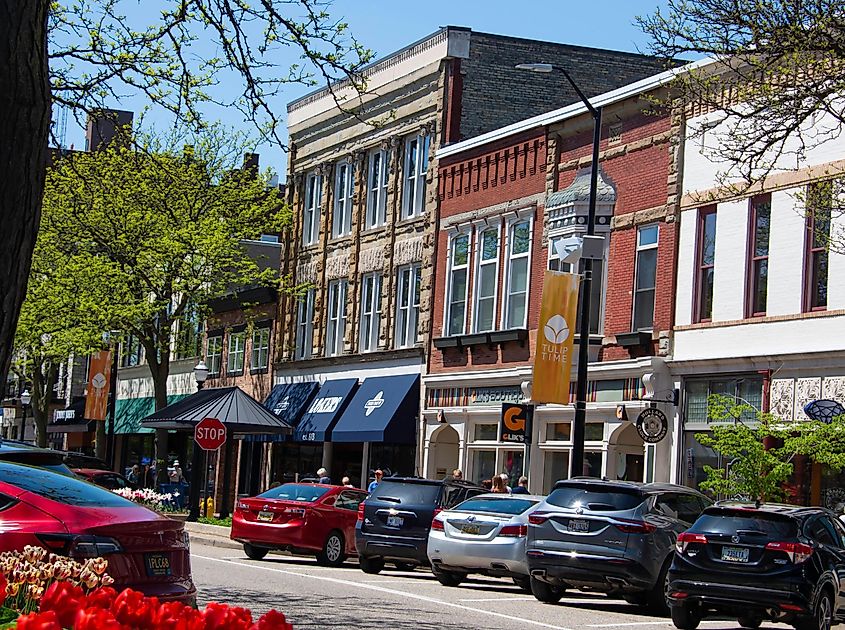
Holland, with 34,000 inhabitants, is home to the Tulip Time Festival, an annual May gathering to celebrate the flowers most associated with the Netherlands. The town's roots trace back to the same country, from where the Michigan town's settlers, fleeing poverty and religious persecution, established the place in 1847. The history deepens at the Cappon House, which was once the home of town mayor Isaac Cappon, and built in 1874. The Cappon House is included on the National Register of Historic Places (NRHP).
For fresh air and even more Dutch heritage, head to Windmill Island, which offers an original windmill, brought from the Netherlands, and re-installed here in 1965. The structure, called De Zwaan ("The Swan"), stands 125 feet tall and is said to be over 250 years old.
Houghton

Houghton, population 8,000, is a ready-for-Instagram Michigan college town. Home of Michigan Technological University, the town, on the northern end of the Upper Peninsula, has welcomed students since 1885. Houghton offers a longtime sports history, too: it was the home of the first-ever professional hockey team, called the Portage Lakers, formed in 1903.
As its hockey heritage would suggest, the town's setting on the Keweenaw Peninsula provides ample opportunity to get outdoors. Portage Lake, which is more like a river, connects with Lake Superior on either side of Keweenaw, offering a range of on-the-water fun. The Douglass House, a historic former hotel, is also NRHP-listed.
Charlevoix

The town of Charlevoix, with 2,400 residents, lies between the beaches of Lake Michigan and Lake Charlevoix. A longtime haven and vacation zone, the town is famous locally for its wealthy residents, equally upscale old resorts, and picturesque nature. Established in 1879, itthe town takes its name from the legendary French explorer of the region, the French Jesuit priest whose full name ran Pierre François Xavier de Charlevoix, and who is considered the first historian of "New France," or modern-day French-speaking Canada.
For more modern visitors, the Charlevoix South Pier Lighthouse is a celebrated tourist attraction, which offers a peaceful setting for lake views and time outdoors. Golf enthusiasts should try their game at the Belvedere, Dunmaglas, or Charlevoix golf clubs, all outside town.
South Haven

South Haven, a town of 4,000 souls, is, like Charlevoix, a quaint lakeside town. This one sits on the southeastern shore of Lake Michigan. The region's lake-focused heritage still shines at the town's Michigan Marine Museum. Creative types might like the South Haven Center for the Arts, also downtown. Like other Michigan lakeside towns, South Haven bloomed as a resort destination in the early 1900s, earning the moniker, "The Catskills of the Midwest."
Outdoorsy types will enjoy the Black River, whose confluence with Lake Michigan supported the development of a port and the original South Haven village, which was first incorporated in 1869. Cycling fans love the Kal-Haven Trail, a former railroad bed which becomes a snowmobiling trail in the winter snow season.
Marquette

Most people know Marquette, which has 20,800 residents, as the largest town in the Upper Peninsula. Incorporated in 1849, and located between the Dead River and the southern shore of Lake Superior, the town gained prominence as an industrial hub and major lake port for the transportation of dug-up iron ore, which was mined from the nearby Marquette Iron Range. Today Marquette is home to Northern Michigan University, making it a college town like Houghton.
Nature lovers and landscape-design students cannot miss a visit to Presque Ile Park. Protected since 1886, the park remained undeveloped after an 1891 decision by Frederick Law Olmsted, who designed New York City's Central Park, the Biltmore residence of the Vanderbilt family, and other famous American natural spaces. Olmsted demanded the space be left alone so as not to disturb Presque Ile's natural beauty. Olmsted's stubborn vision, and the beauty it preserved, remains a public benefit today.
Harbor Springs

Harbor Springs, population just 1,300, sits on Little Traverse Bay on Lake Michigan. It maintained the largest concentration of Michigan's Native American peoples until the mid-19th century, among them the Odawa tribal group. The town has since evolved into a lakeside and resort community that draws visitors as a small town with huge, natural appeal. Cultural connoisseurs will want to tour the area's historic, beautiful summer resorts, especially Wequetonsing, which is famous for its high-end offerings and its connections to the Midwestern industrialist Jacob Bunn.
Budget- and familyfriendly things to see include the Little Traverse Lighthouse, built in 1884, which once guided boats to nearby Harbor Point, which is the deepest natural harbor in the entire Great Lakes region. (The lighthouse was decommissioned in 1963.) Other popular sites include City Beach, Zorn Park, and Josephine Ford Park, next to Lake Michigan.
Frankenmuth
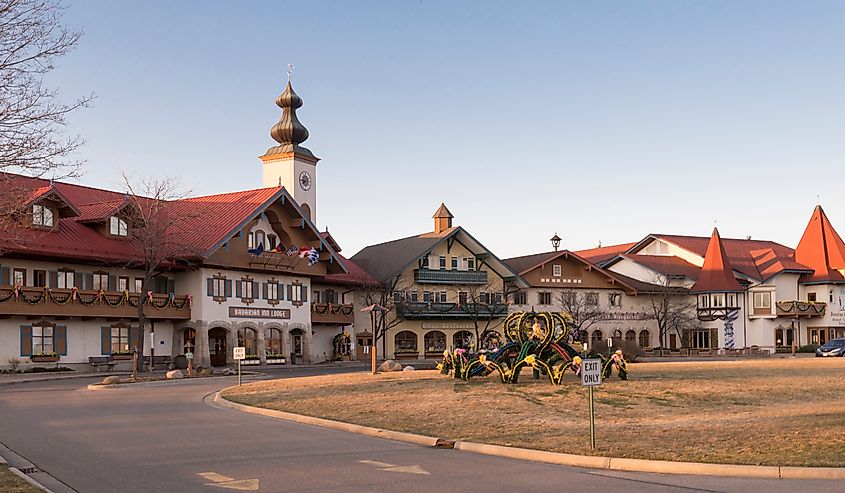
Frankenmuth, celebrated locally as "Little Bavaria," has 5,200 inhabitants and the look and feel of an old German town. The east-central town's nickname comes from the waves of immigrants from southern Germany, among other points of origin, who relocated here and built a legacy that endures today. The Frankenmuth Historical Museum is a must-visit site for anyone interested in local and social histories.
For culture, fall-season visitors should catch Oktoberfest, a German-themed tradition of bratwurst, beer, and brotherhood since 1990. Those in Frankenmuth in winter can check out Bronner's Christmas Wonderland. Also in winter, Zehnder's SnowFest hosts a US collegiate ice-carving tournament, said to be one of the top such events in North America.
Picture-Perfect Michigan Is In Its Small Towns
Michigan's larger cities like Detroit and Grand Rapids may offer some big-city attractions, but the state's smaller towns like these have the best, and most beautiful, to interest the visitor. Places like Holland and Frankenmuth wear their roots and traditions in their very names. Marquette is a photo-worthy college town and one of the Upper Peninsula's best addresses. And the state's beloved lake resort towns, from Charlevoix to Harbor Springs, show a slice of Michigan's good life that few other places can match. As Michiganders know, the state's picture-perfect towns clearly warrant a visit, or several.
